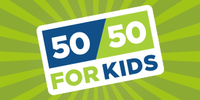While thousands of teachers took to the streets in over a dozen Saskatchewan centres on January 16, the provincial and national leaders of teachers' organizations headed to the Legislature to voice concerns.
Saskatchewan Teachers’ Federation President Samantha Becotte and Canadian Teachers’ Federation President Heidi Yetman delivered over 3,300 letters to the Premier’s office and the office of Minister of Education Jeremy Cockrill.
“It is extremely unfortunate that government has pushed this issue to the point that it is now impacting schools,” says Saskatchewan Teachers’ Federation President Samantha Becotte. “This is the very last thing any teacher wants to do. Teachers and supporters throughout the province are braving the cold today to advocate for their students and ensure they get the resources they desperately need. This government simply cannot continue to ignore these growing concerns.”
A release from the STF noted the letters were submitted from teachers and parents across the province, describing critical issues such as class size and complexity, and what the government must do to address them.
“If we improve class composition, we improve learning conditions for students. This is why teachers in Saskatchewan are out on the streets today, to make sure that every student in this province gets the education they deserve. An education that will prepare them for the modern world,” says CTF President Heidi Yetman. “It astounds me that the Government of Saskatchewan refuses to negotiate workload and class complexity. Collective agreements across this country include language on workload, class sizes and class composition; and yet, the collective agreement in this province contains no such language. This is unacceptable.”
Becotte said on January 16 that the Government had not responded to entreatments to return to the table. She said over 9,400 emails had been sent to the Premier and the Minister urging the resumption of meaningful talks.
“We have not heard from government with any willingness to return to the table, but government has certainly heard from us,” says Becotte. “Thousands of people are demanding better for students and teachers. Public support for teachers and education has been incredible, and deeply appreciated by our members. If we are going to hold government accountable for their responsibility to Saskatchewan’s kids, we need people from all corners of the province to continue sharing their voices. Government will hear us loud and clear: Enough is enough.”
The Opposition NDP Leader Carla Beck weighed in by joining teachers on the line and sending members of her team throughout the province to deliver messages of support.
“I think it’s incredibly disappointing that Scott Moe and the Sask. Party government are refusing to get to table and at least try to bargain on nine out of ten items. Everyone could see this strike coming from miles away and the Premier still did nothing to prevent it,” Beck said in a release. “Other provinces like Ontario and British Columbia worked collaboratively with teachers to avoid strikes. It didn’t have to come to this.”
For its part, the Government has said the Government-Trustee Bargaining Team is willing to return to the table, but it will not address classroom size or complexity, a key ask for teachers, as a function of provincial bargaining.
“On the issue of classroom complexity, that’s a line in the sand for government that we’re not going to be moving on,” said Minister Cockrill in a media gathering. “We believe that issues around classroom size and complexity are best dealt with by school divisions locally – twenty-seven of them in a diverse range of communities. We think school divisions are best positioned to manage that. The union’s request is to basically take that away from local school boards.”
With the two sides seemingly far apart on the issue, it remains to be seen what action the STF will take in terms of further job action or what kinds of responses will be forthcoming from the government.














